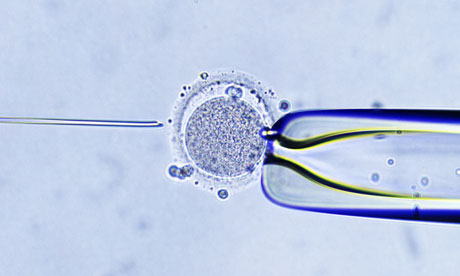HFEA finds mitochondrial transfer ‘not unsafe’
The peak UK IVF regulatory body has published its findings on the controversial new procedure known as mitochondrial replacement therapy.

The peak UK IVF regulatory body has published its findings on the controversial new procedure known as mitochondrial replacement therapy (MRT). The Human Fertilization and Embryology Authority (HFEA) cautiously labeled the procedure “not unsafe”. In a 56-page document the HFEA surveys the progress of academic research into the MRT, and suggests that it could be safe to conduct clinical trials 18 to 24 months.
“At each stage of the review process the panel reached a view that the evidence it has seen does not suggest that these techniques are unsafe”, the report states.
Mitochondrial replacement therapy has the potential to prevent serious congenital diseases by removing mutant DNA from the mitochondria of embryos.
Some remain concerned about the safety of embryos who will first be experimented on. In an article published in Public Discourse in March, University of Utah stem cell scientist Maureen Condic warned of genetic complications in the therapy:
“All three [methods of ‘mitochondrial transfer’] are highly likely to be unsafe for the resulting children, even the ones that are not deliberately destroyed and are not damaged by the procedure itself.”
https://www.bioedge.org/images/2008images/TH_mito9987.jpg
Creative commons
HFEA
mitochondrial replacement
three-parent embryos
UK
More Stories
Shady American company advertises kit for semen theft
A Texas company marketing its “at home insemination kit” on social media is encouraging women to use the semen from...
UK lesbian couple swap embryos and carry each other’s child
Another dispatch from the Reproductive Revolution. A lesbian couple in the United Kingdom have successfully given birth to two boys through...
Singapore should ban reproductive applications of synthetic human embryos
In recent years, Singapore has invested heavily in developing its biomedical industry. Of particular interest for policymakers are new assisted...
Singapore will need to confront ethical and moral dilemmas with artificial womb technology
We are facing a brave new world with artificial womb technology (AWT). This refers to bioengineered systems for the gestation...
American IVF doctors adopt ‘inclusive’ definition of fertility
According to the World Health Organisation, “Infertility is a disease of the male or female reproductive system defined by the...
Israeli team creates synthetic human embryos without eggs or sperm
An Israeli research team at the Weizmann Institute of Science has created artificial human embryos from stem cells cultured in...
